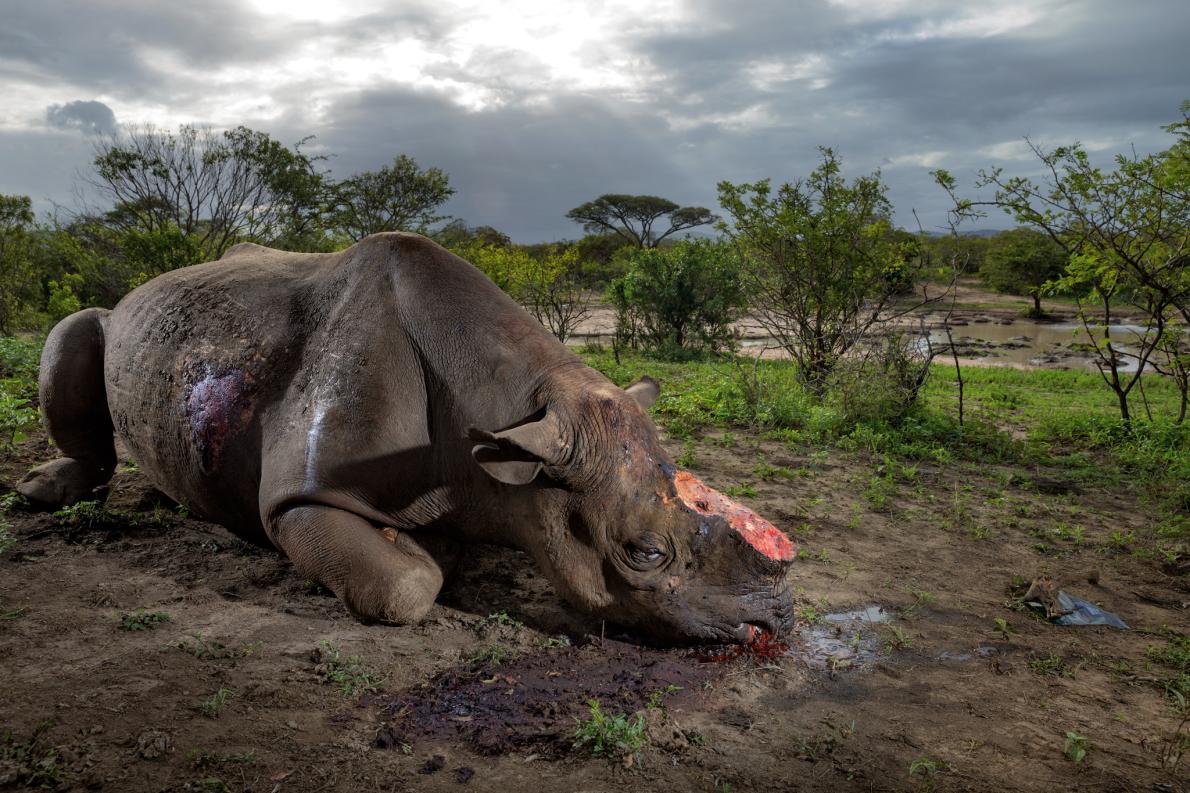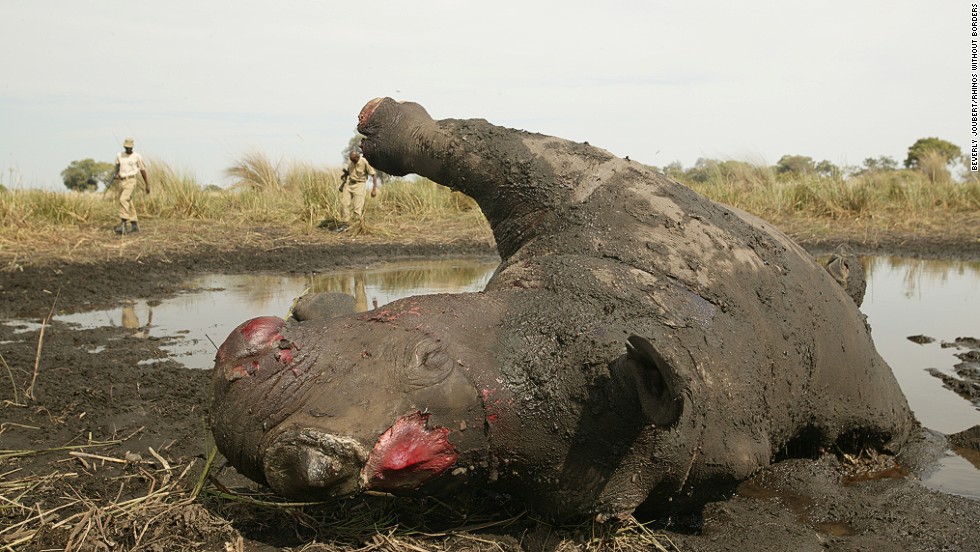Beijing’s decision prompts outcry from global conservation groups amid fears over endangered species future in the wild. China has defended its decision to reverse aspects of a decades-old ban on the trade of tiger bones and rhino horns after conservationists labelled it a “huge setback”. To efforts aimed at protecting the endangered animals’ future in the wild.
Beijing’s State Council on Monday said trade in parts obtained from “farmed rhinos and tigers” would be authorised for scientific, medical and cultural use. In all other circumstances, the buying and selling of rhino and tiger parts will remain illegal.

Poachers killed this black rhinocerous for its horn with high-caliber bullets at a water hole in South Africa’s Hluhluwe-Imfolozi Park. They entered the park illegally, likely from a nearby village, and are thought to have used a silenced hunting rifle. Black rhinos number only about 5,000 today. Photo by: Brent Stirton
“Regulation on the sales and use of these products will be strengthened … and the trade volume will be strictly controlled,” the council said in a statement.
Rhino horns and tiger bones are valued by some practitioners of traditional Chinese medicine and prescribed to treat a range of ailments, including fever, gout, rheumatism and back pain. The parts supposed medicinal benefits have never been scientifically proven.
The Chinese announcement prompted an outcry from global conservation bodies, which fear the new rules could drive the illegal trade and further put the animals at risk of being poached.
Like tigers, rhinos face considerable threats from habitat destruction and poaching
“With wild tiger and rhino populations at such low levels and facing numerous threats, legalised trade in their parts is simply too great a gamble for China to take,” WWF’s Kinnaird said.
The US-based animal protection organisation Humane Society International (HSI) said China’s decision had “signed a death warrant for imperilled rhinos and tigers in the wild who already face myriad threats to their survival”.
“It sets up what is essentially a laundering scheme for illegal tiger bone and rhino horn to enter the marketplace and further perpetuate the demand for these animal parts,” Iris Ho, HSI’s senior specialist for wildlife programme and policy, said in a statement on Monday.
“This is a devastating blow to our ongoing work to save species from cruel exploitation and extinction, and we implore the Chinese government to reconsider.”
Source: Aljazeera




